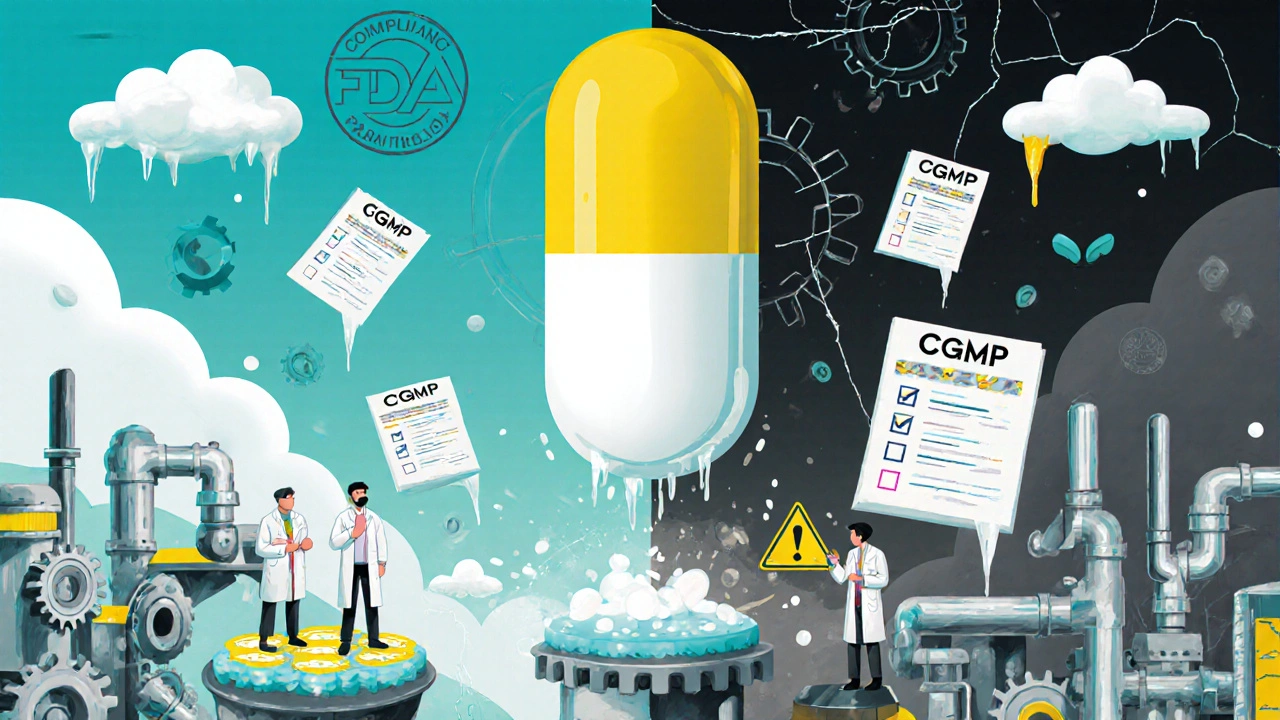CGMP Guidelines: What You Need to Know About Drug Safety Standards
When you take a pill, you expect it to work the way it should—no surprises, no contamination, no guesswork. That’s where CGMP guidelines, Current Good Manufacturing Practices that set the minimum standards for how pharmaceuticals are made, tested, and controlled. Also known as cGMP, these rules are the backbone of every approved medicine you buy, whether it’s a generic or brand-name drug. They’re not suggestions. They’re legally required. If a factory doesn’t follow them, the FDA can shut it down—and that’s exactly what’s happened to dozens of facilities over the last decade.
CGMP guidelines cover everything: how clean the factory floors are, how workers handle ingredients, how machines are calibrated, and even how records are kept. A single mistake—like using the wrong label or storing a drug in a humid room—can turn a life-saving medicine into a dangerous one. That’s why pharmaceutical quality, the consistent production of safe, effective, and standardized medications isn’t just a buzzword. It’s a matter of life and death. And it’s why you’ll find posts here about expired drugs, medication interactions, and unsafe dosing—all of which can trace back to failures in manufacturing or handling that CGMP was designed to prevent.
These rules also explain why generic drugs are just as safe as brand-name ones. Under CGMP, a generic manufacturer must prove their version works the same way, in the same amount, under the same conditions. That’s not marketing—it’s science enforced by law. You’ll see this connection in posts about buying cheap generic Prilosec or tetracycline online: if the pharmacy skips CGMP checks, you’re risking a fake or degraded product. Same goes for supplements, which often fly under the radar of these standards.
CGMP guidelines don’t just protect you from bad drugs—they protect you from bad luck. A batch of antibiotics made in a dusty room might look fine, but if the air wasn’t filtered, you could end up with a life-threatening infection. That’s not rare. It’s happened. And when it does, it’s almost always because someone cut corners on CGMP. That’s why the posts here dive into things like drug interactions, side effects, and expiration dates: they’re all symptoms of deeper issues in how medicine is made and handled.
You don’t need to be a pharmacist to care about CGMP. You just need to know that your health depends on it. Whether you’re managing blood pressure with metoprolol, treating acne with tretinoin, or taking birth control like Yasmin, you’re relying on systems that were built to keep you safe. And those systems only work if they’re followed—every step of the way. Below, you’ll find real stories and practical guides that show how CGMP touches your life, from the shelf to your medicine cabinet. Know what’s behind the pill. It matters more than you think.
GMP for Generics: FDA Requirements for Manufacturing Generic Drugs
FDA's CGMP requirements ensure generic drugs meet the same quality, safety, and effectiveness standards as brand-name drugs. Learn the key rules, common violations, and how manufacturers stay compliant.
More
